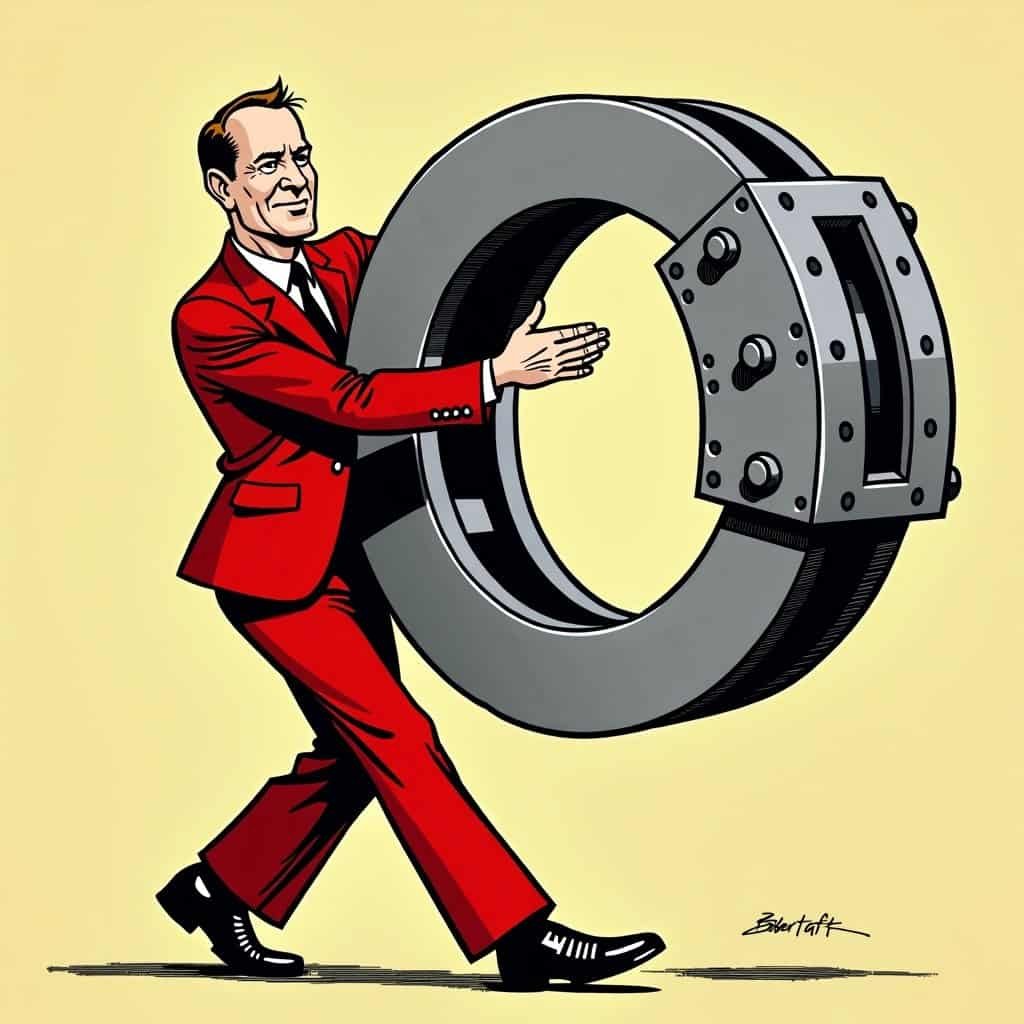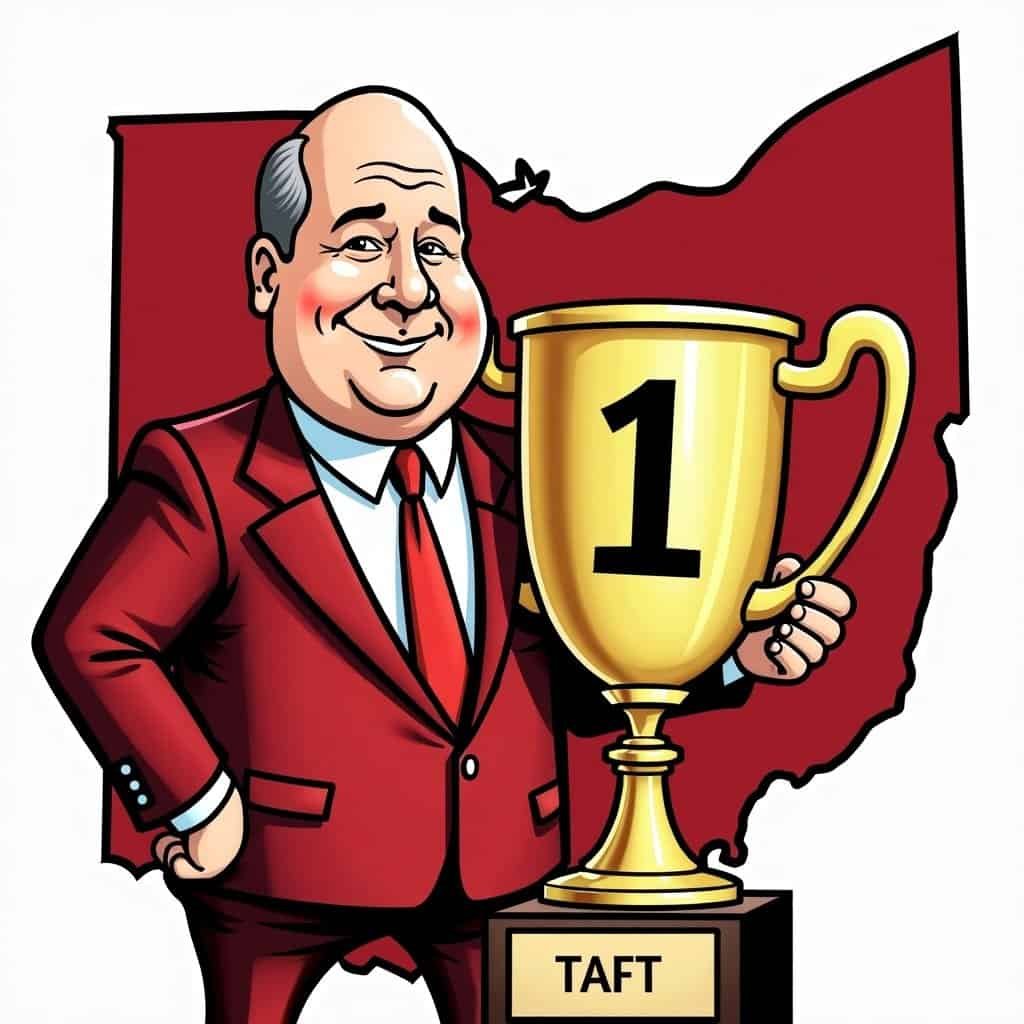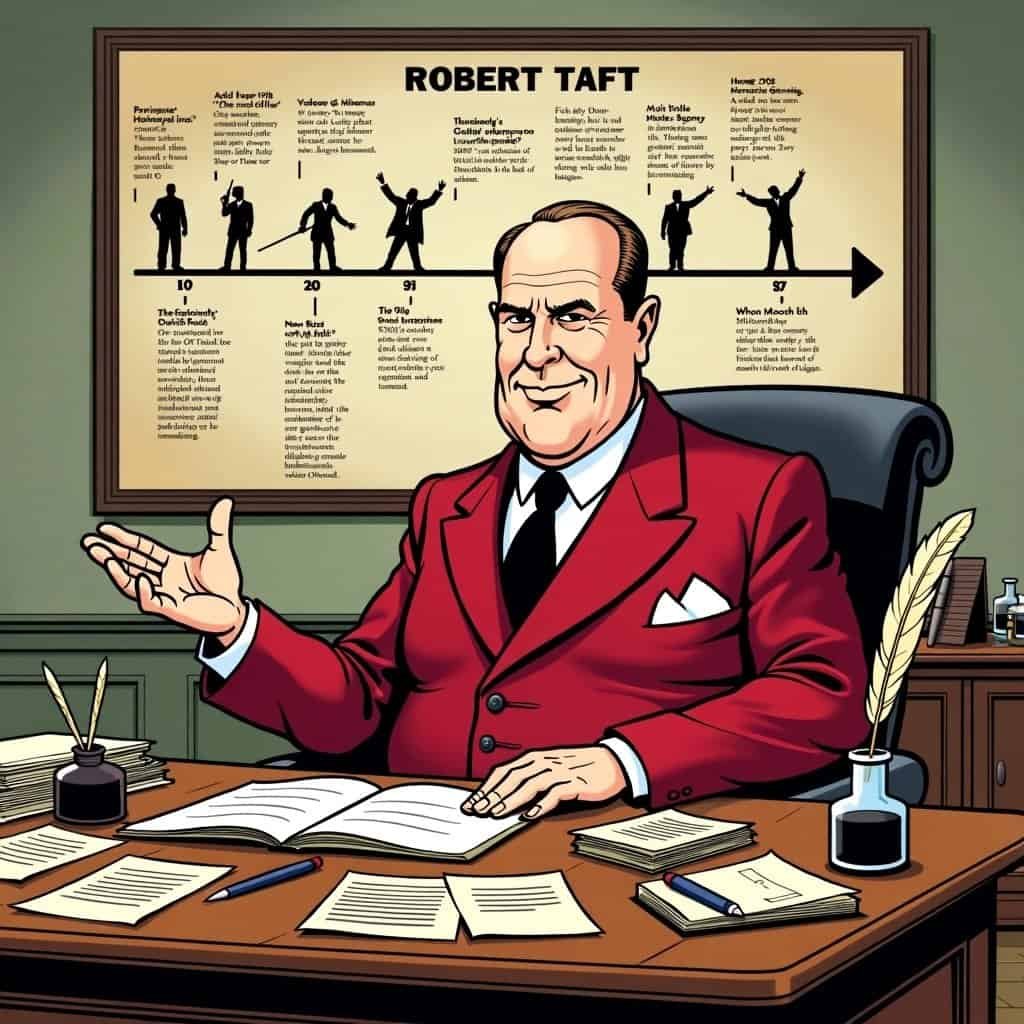Dear freedom-loving amigos, let’s take a stroll down Fiscal Memory Lane, stopping at Robert Taft’s doorstep. Taft isn’t just another face in a museum; he’s the unsung hero of fiscal conservatism. Never heard of him? Well, with today’s politicians vying for attention like hungry seagulls, true giants sometimes get lost in history’s shuffle.
Imagine 1930s America, when some folks thought the best way to a man’s wallet was through government handouts. Enter Robert Taft, marching to a different beat. His focus on fiscal conservatism was the guiding light for smart money management, government responsibility, and – hold onto your hats – respect for taxpayers.
Let’s unpack this financial wizard, shall we? Taft was the conductor of the ‘no-wasted-tax-dollars’ symphony, pushing for the kind of accountability that would make today’s big spenders sweat. He had this crazy notion that you should live within your means – wild, right? It’s as simple as pie, yet as tricky as teaching a fish to ride a bicycle.
Taft’s Fiscal Philosophy
But Robert, bless his heart, knew that by keeping budgets tighter than a drum, prosperity would follow. Creating a public policy landscape that kept government size in check was his specialty, showing that sometimes less is indeed more. And while some might clutch their pearls at the thought, it paid off – big time. Lower taxes, fewer rules, and room for businesses to grow? That’s fiscal conservatism done right. Ring any bells?
Fast forward to 2023, where anyone with internet access fancies themselves an economic expert. It’s tempting to brush off these lessons as ‘old-school thinking,’ but fiscal conservatism still shines bright in managing money wisely. Look at today’s government budgets growing like a teenager’s appetite and the quick liberal response to wave the ‘tax-and-spend’ magic wand. Robert Taft would have us all sit down and crunch the numbers, minus the political razzle-dazzle.
The Value of Fiscal Conservatism
The importance of personal responsibility and market-driven economic policies can’t be overstated. Conservatives, always singing the tune of limited government and personal freedom, get that when you rein in Uncle Sam’s reach, you give folks room to breathe, dream, and yes, succeed. So why are the folks across the aisle so eager to crank up taxes and go on spending sprees? Beats me!
Sure, you can raise taxes for a quick cash boost, but where’s the long game? It’s like wolfing down a whole pizza – satisfying for a moment until you’re left wondering why you did that. Our liberal friends seem fond of this approach. But in conservative country, people prefer planting seeds for growth rather than burning the fields.
| Conservative Approach | Liberal Approach |
|---|---|
| Limited government spending | Increased government programs |
| Lower taxes | Higher taxes |
| Free market solutions | Government interventions |
| Individual responsibility | Collective responsibility |
Good ol’ Taft had it right. Fiscal conservatism isn’t about playing games with retirement funds; it’s about laying the groundwork for lasting economic health. Conservatives believe a thriving economy isn’t built on handouts but on chances, like tending a garden rather than chopping it down for quick cash.
So, dear readers, next time you hear a politician promise the moon with a footnote of “fee increases”, take a breather and ponder: What would Robert Taft do? And while we’re riding the wave of conservative values and human grit, let’s remember, it’s the backbone of fiscal conservatism that builds the road to prosperity.
With that, let’s tip our hats to Mr. Taft – a fiscal conservative whose legacy encourages us to sow sturdy seeds, reap the rewards of economic smarts, and leave politics at the door. Here’s to the right side of the wallet, because as history shows, it’s only when liberals stop playing Santa Claus year-round that we’ll give future generations a fighting chance.






